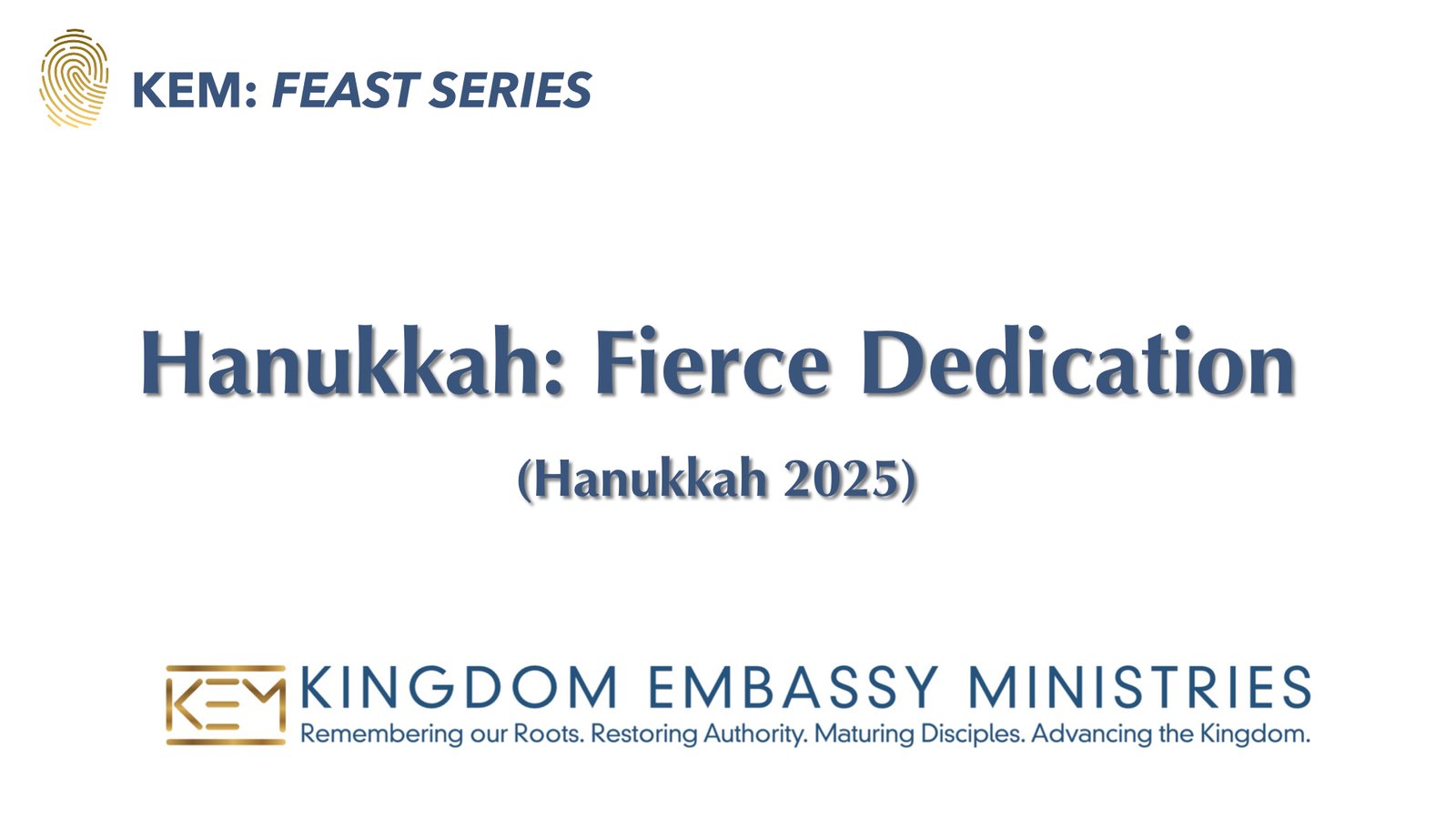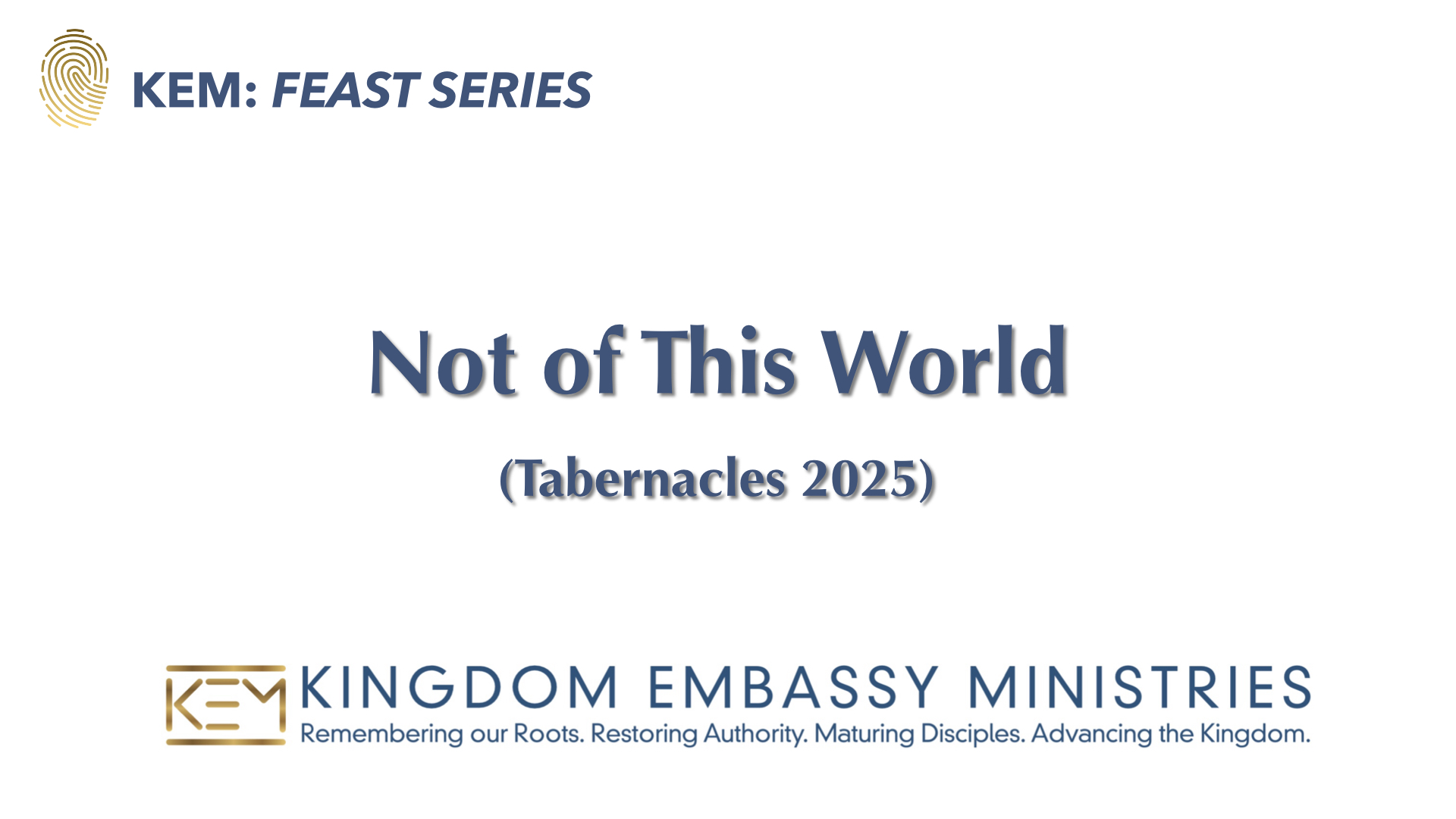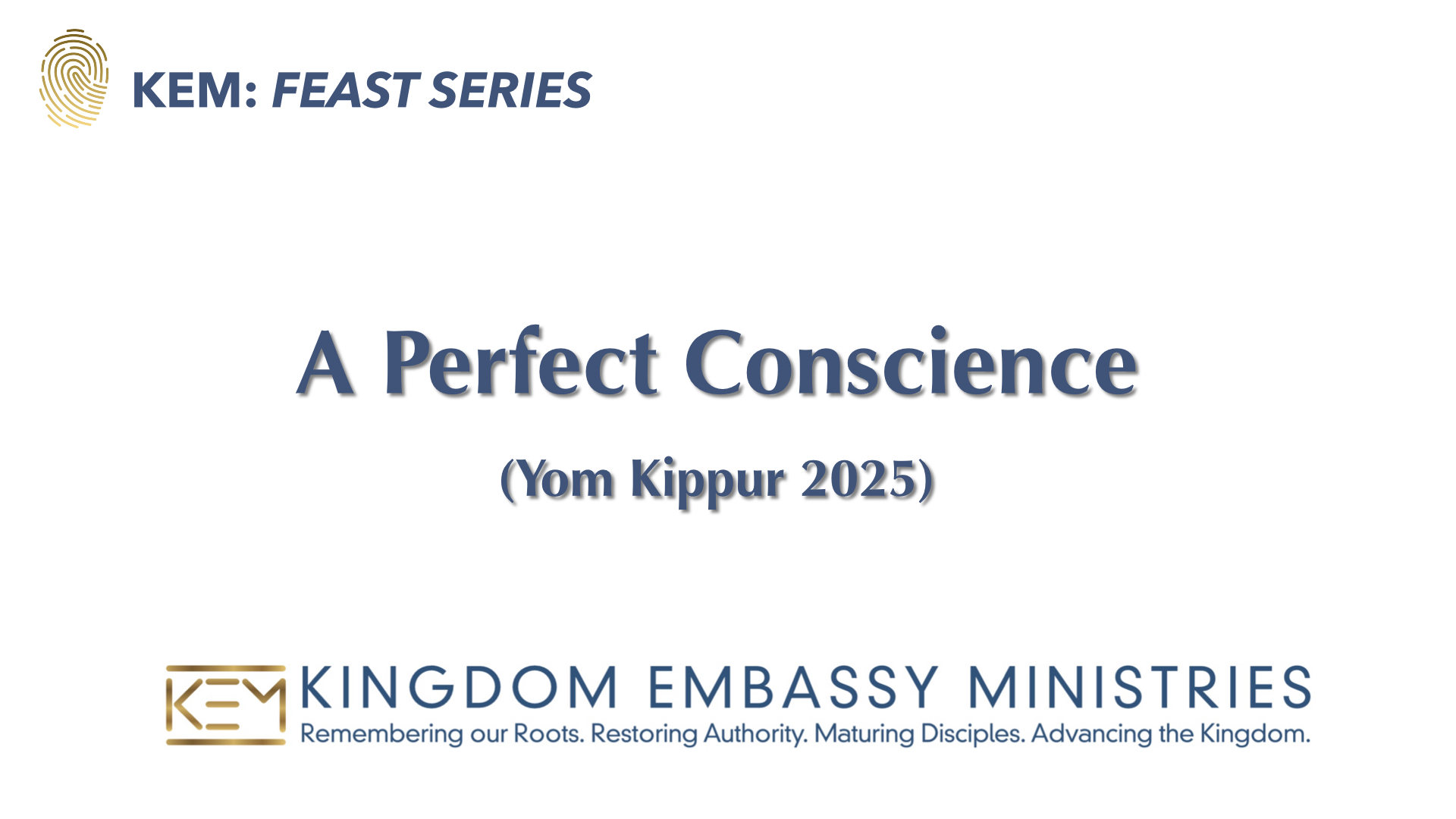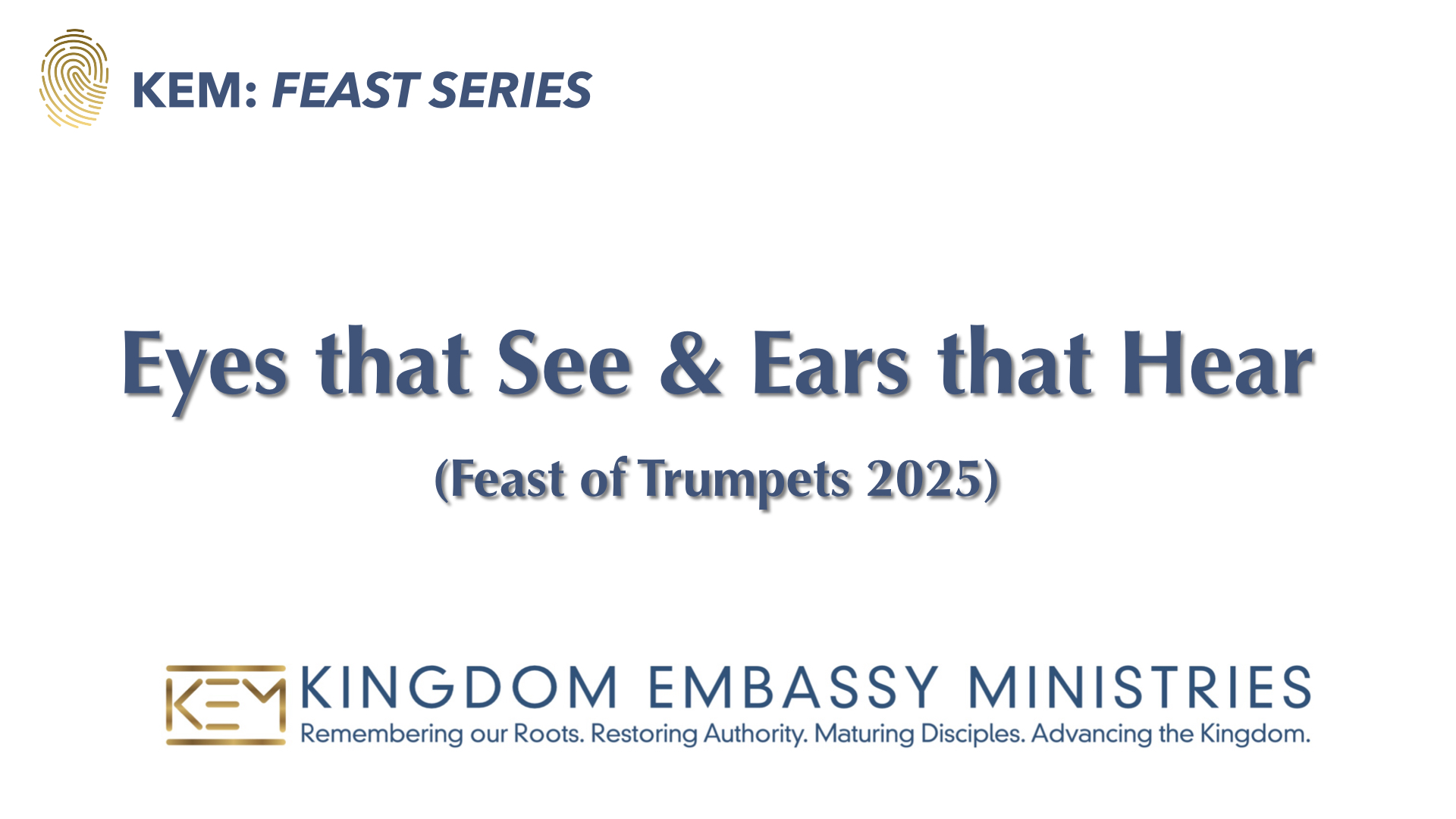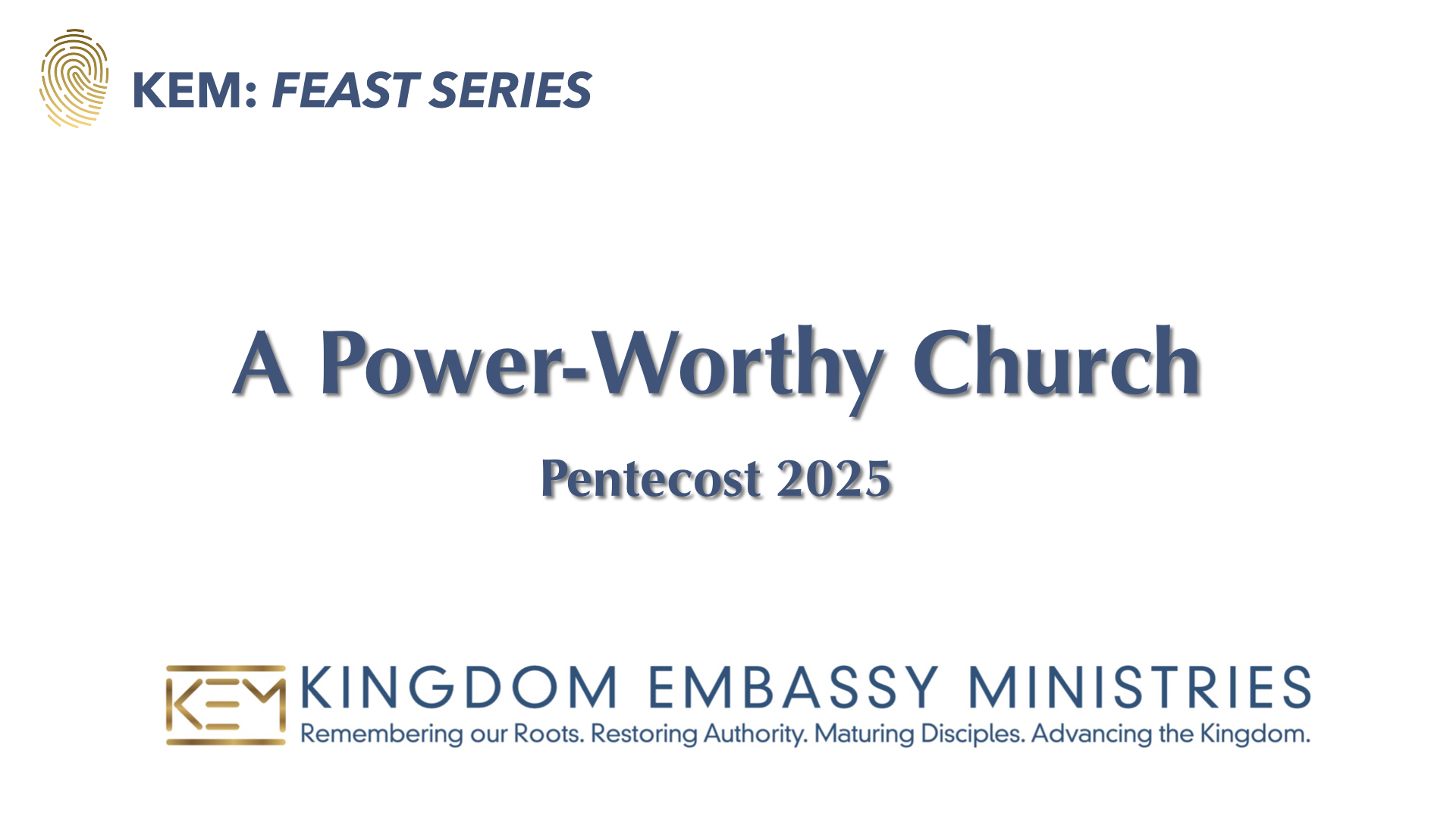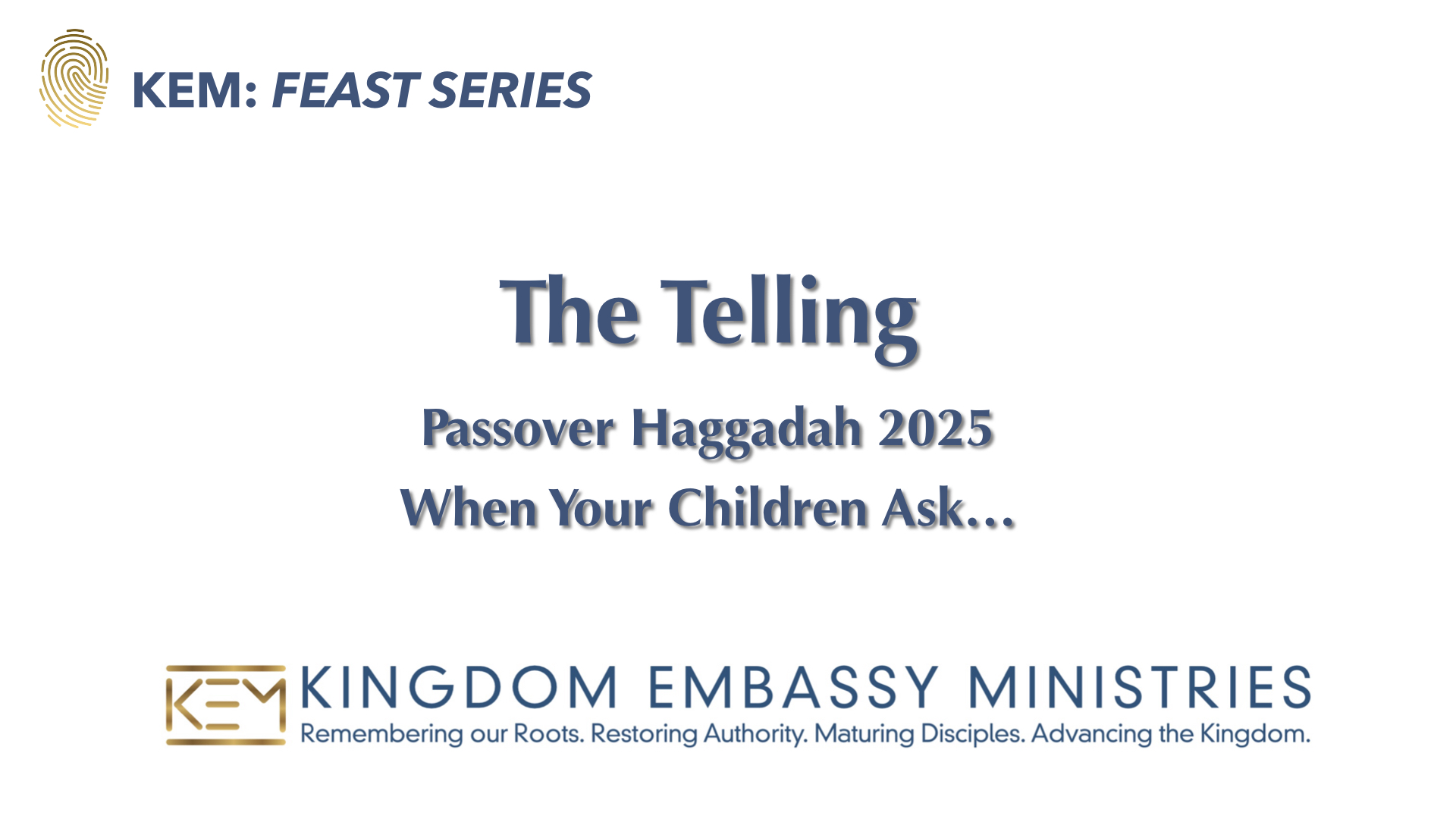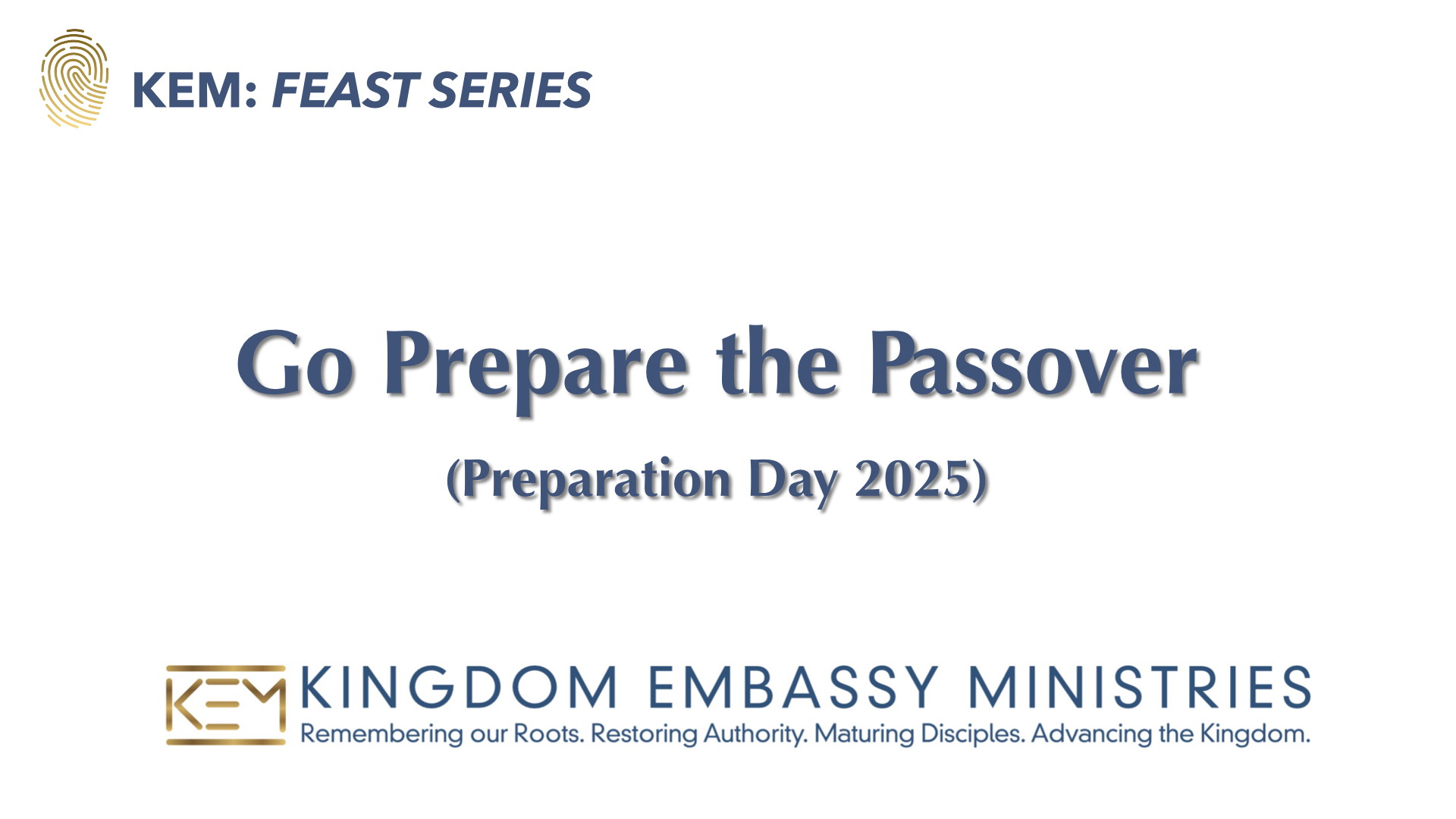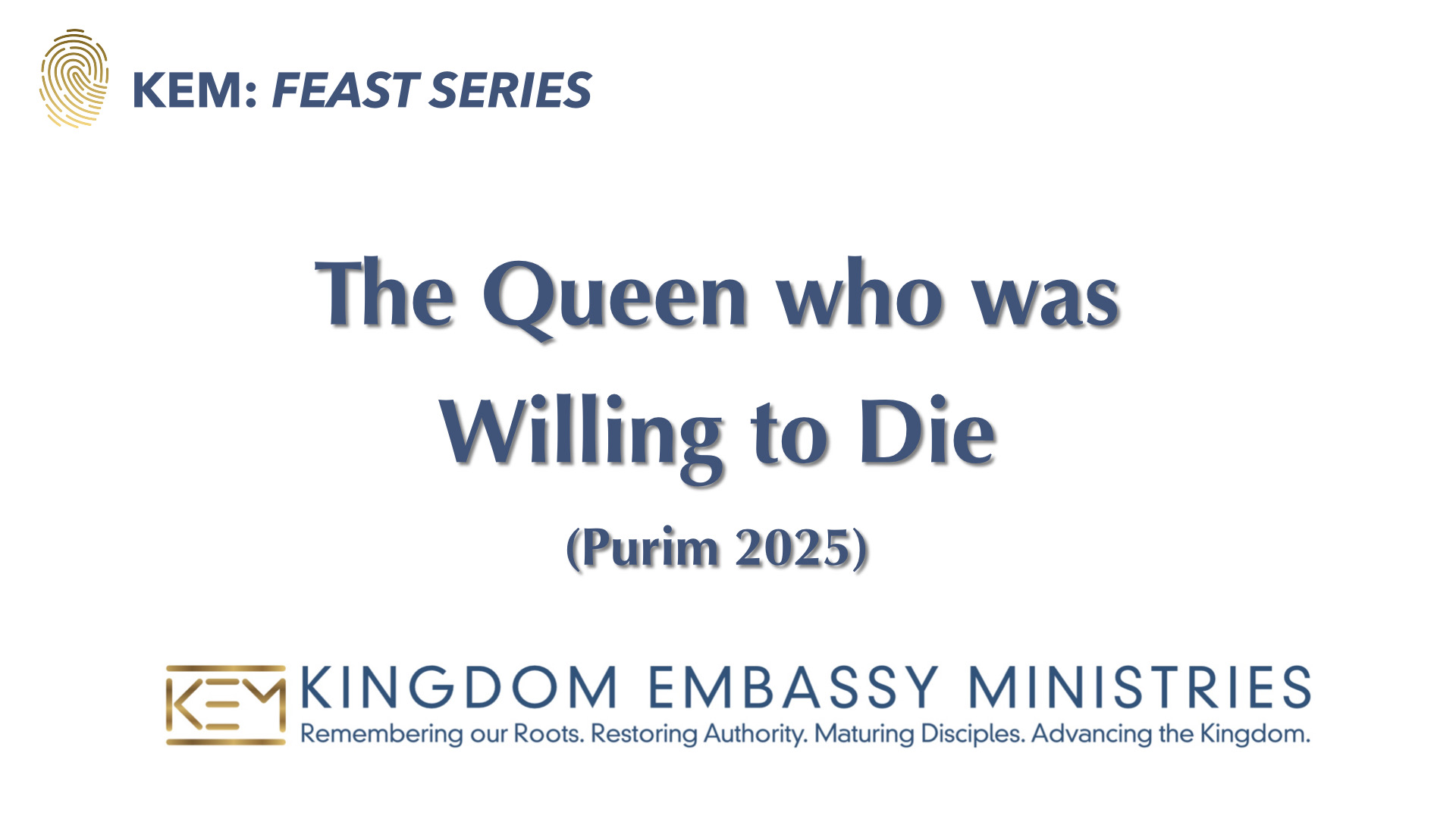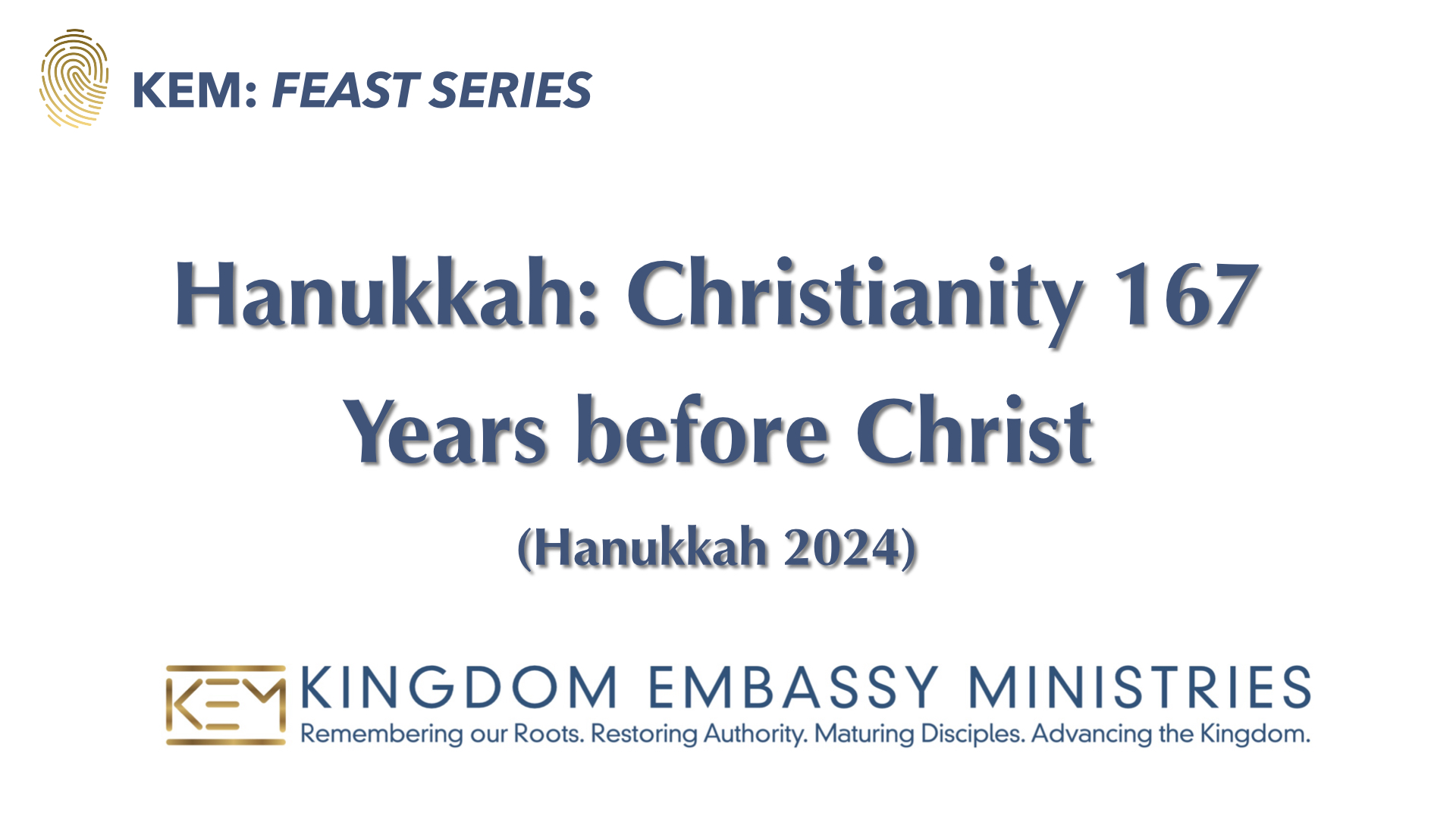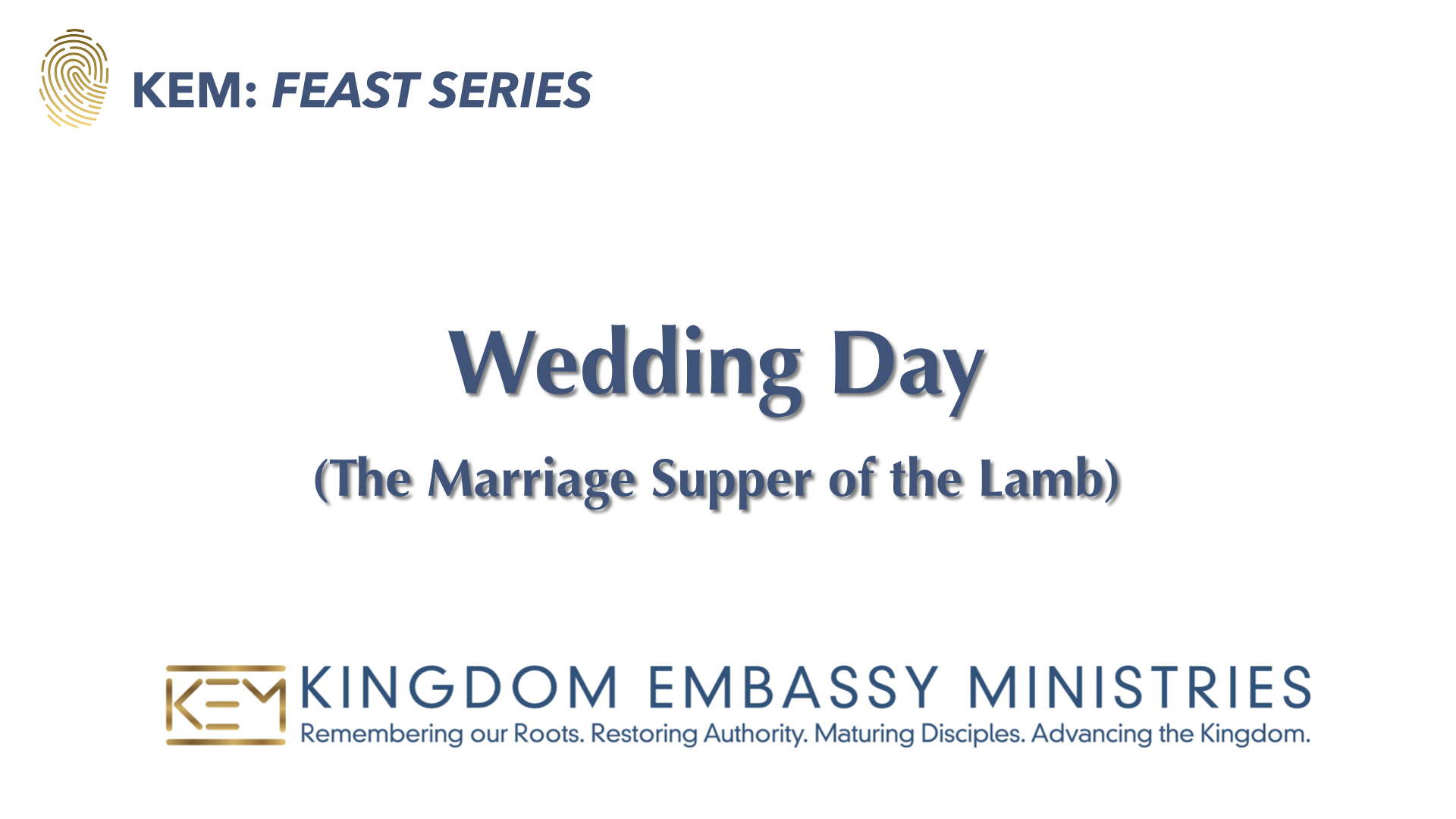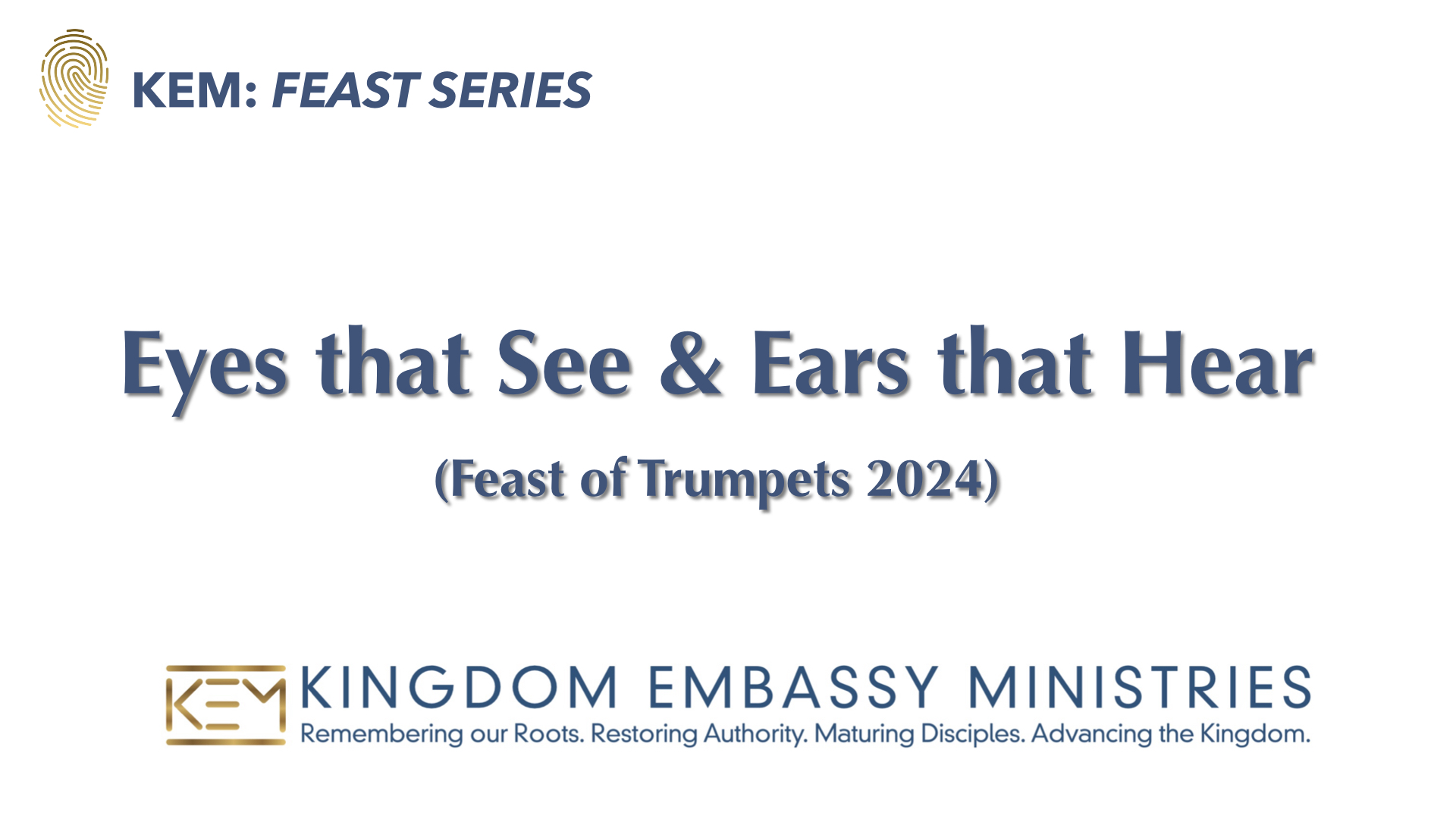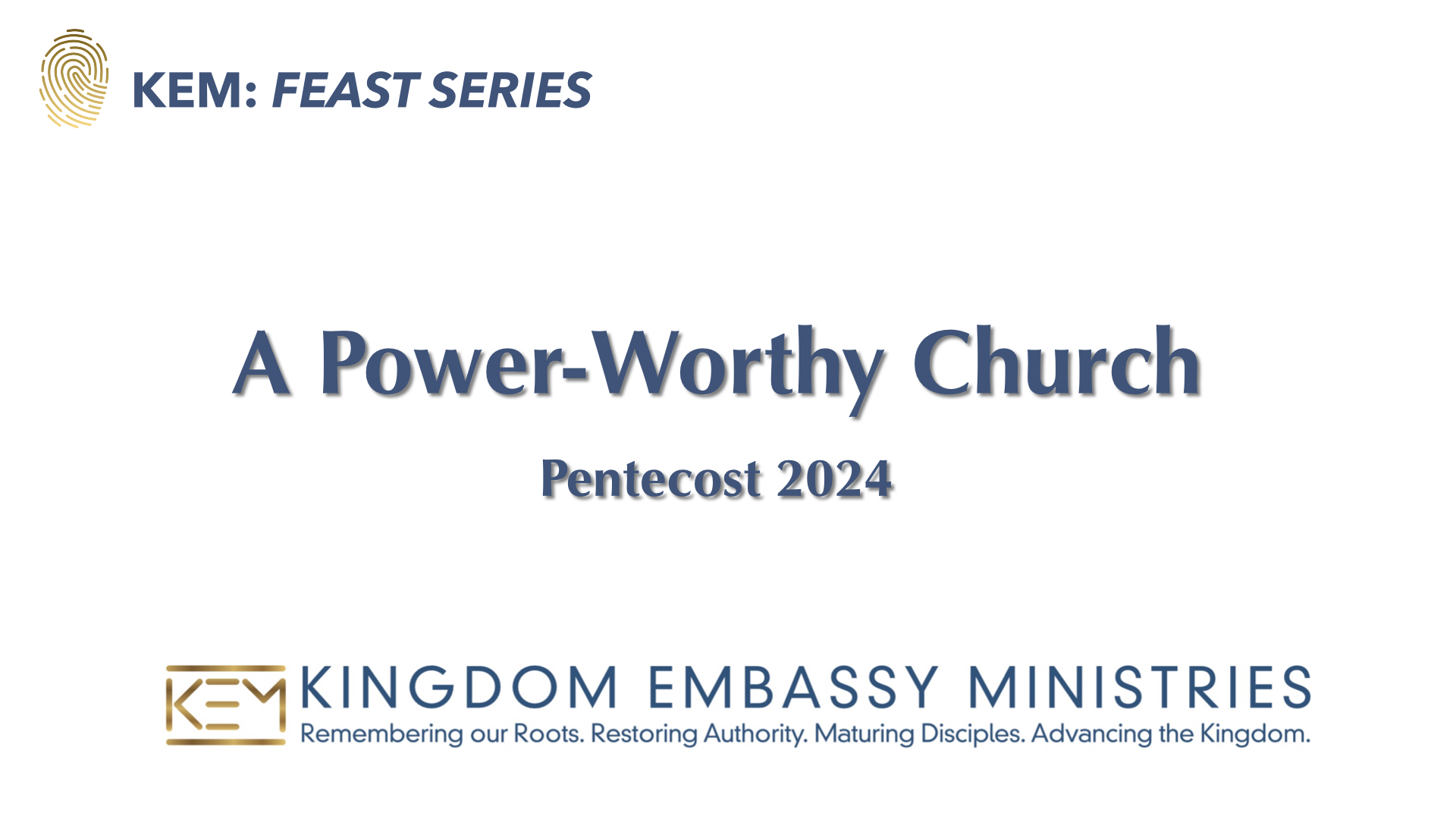Yearly Feasts of Yahweh
2025-12-19 | 1-2 Maccabees | Hanukkah: Fierce Dedication
Sermon Notes | It was the Feast of Dedication, and Y’shua was fully aware of what was about to happen and to what He was alluding. Today, Jews [...]
2025-10-10 | Leviticus 23:36-39 | Clothed for My Wedding | The Great Day 2025
Sermon Notes | It was a betrothal, and today we have all but lost the dense significance of such customs. Once the image was diluted, it did not [...]
2025-10-03 | Leviticus 23:33-44 | Not of This World | Tabernacles-2025
Sermon Notes | The Word became flesh and pitched a tent among us. He tabernacled with us, and we beheld His glory. Yet He was here for what [...]
2025-09-26 | Leviticus 16 | Yom Kippur 2025 | A Perfect Conscience
Sermon Notes | If there is one Feast of Yahweh, more than any other, that Christians believe no longer has any relevance for them, it has to be [...]
2025-09-19 | Leviticus 23:23-25 | Eyes that See & Ears that Hear | Feast of Trumpets 2025
Sermon Notes | “Let there be lights in the firmament of the heavens to divide the day from the night; and let them be for signs and seasons, [...]
2025-06-06 | Pentecost 2025 | A Power Worthy Church
Sermon Notes | Are you perfectly content with commemorating Hallmark holidays that are dedicated to man-made traditions, while completely ignoring the Feasts of the Lord—Yahweh’s Biblical Holidays? When [...]
2025-04-12 | Passover Haggadah | The Telling: 2025
Haggadah 2025 | From Anointing to Resurrection | When your children ask, what will you tell them? What happens when God’s children have separated from their roots, forgotten [...]
2025-04-11 | John 13:17 | Go Prepare the Passover | Preparation Day 2025
Feast Notes | Asking questions is one of the most effective ways to engage the mind on a deeper level. Paul and Y’shua used this rabbinic style often [...]
2025-03-14 | Esther 1:10 | Purim 2025 | The Queen who was Willing to Die
Sermon Notes | The law of Moses describes how God’s mighty act of deliverance is the meaning behind holidays such as Passover and Tabernacles. The book of Esther [...]
2024-12-27 | 1-2 Maccabees | Hanukkah-Christianity 167 Years before Christ
Feast Notes | ` Hanukkah: Christianity 167 Years before Christ It was the Feast of Dedication and Y’shua was fully aware of what was about to happen and [...]
2024-10-25 | Leviticus 23:36-39 | Wedding Day | The Marriage Supper of the Lamb
Feast Notes | It was a betrothal and today we have all but lost the dense significance of such customs. Once the image was diluted it did not [...]
2024-10-18 | Leviticus 23:33-44 | It’s Temporary | Tabernacles 2024
Feast Notes | The Word became flesh and pitched a tent among us. He tabernacled with us and we beheld His glory. Yet He was here for what [...]
2024-10-11 | Leviticus 16 | Become the Righteousness of God | Yom Kippur 2024
Feast Notes | “Once and for all means once and for all,” doesn’t it? If there is one Feast of Yahweh, more than any other, that Christians believe [...]
2024-10-04 | Leviticus 23:23-25 | Eyes that See and Ears that Hear | Feast of Trumpets 2024
Feast Notes | “Let there be lights in the firmament of the heavens to divide the day from the night; and let them be for signs and seasons, [...]
2024-06-07 | Pentecost 2024 | A Power Worthy Church
Sermon Notes | Are you perfectly content with commemorating Hallmark holidays that are dedicated to man-made traditions, while completely ignoring the Feasts of the Lord—Yahweh’s Biblical Holidays? When [...]
2024-04-22 | Passover 2024
2024 Passover Haggadah: The Telling | From Anointing to Resurrection | | Welcome to the Passover with Kingdom Embassy Ministries When your children ask, what will [...]
2024-04-19 | John 13-17 | Preparation Day
Sermon Notes | From Anointing to Resurrection | Asking questions is one of the most effective ways to engage the mind on a deeper level. Paul and Y’shua [...]
2023-10-06 | Leviticus 23:36-39 | Wedding Day
Sermon Notes | It was a betrothal and today we have all but lost the dense significance of such customs. Once the image was diluted it did not [...]
2023-09-29 | Leviticus 23:33-44 | Not of This World | Tabernacles
Sermon Notes | The Word became flesh and pitched a tent among us. He tabernacled with us and we beheld His glory. Yet He was here for what [...]
2023-09-22 | Leviticus 16 | Behind the Veil | Yom Kippur
Sermon Notes | “Once and for all means once and for all,” doesn’t it? If there is one Feast of Yahweh, more than any other, that Christians believe [...]
2023-09-15 | Leviticus 23:23-25 | Sober and Watching | The Feast of Trumpets
Sermon Notes | “Let there be lights in the firmament of the heavens to divide the day from the night; and let them be for signs and seasons, [...]

